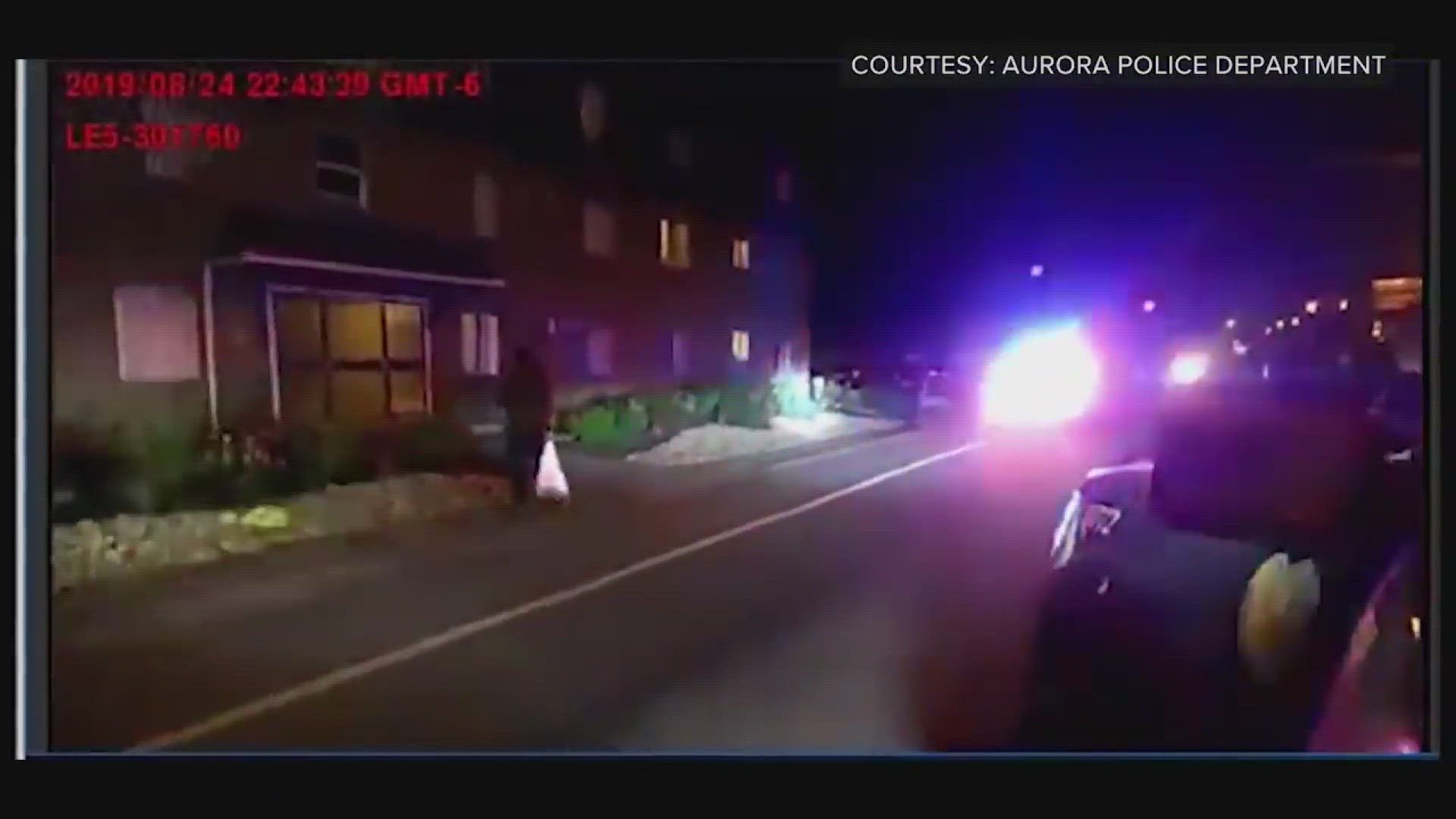AURORA, Colo. — Jury selection is scheduled to start Friday for two of the first responders indicted in the 2019 death of Elijah McClain, who was tackled, subdued and drugged as he walked on an Aurora street after reports he was acting suspicious.
Suspended Aurora police officer Randy Roedema, 41, and former officer Jason Rosenblatt, 34, each face charges of reckless manslaughter and second-degree assault.
If convicted of the assault charge, the more serious of the two counts they each face, the sentence could range from probation on the low end to a maximum of 16 years in prison.
The situation began Aug. 24, 2019 with a 911 call from a man concerned that McClain, 23, was wearing a mask.
“He seems sketchy,” the man said.
The first officers who responded confronted McClain – who was breaking no laws – took him to the ground, and restrained him during a struggle. Later, paramedics who responded to the scene injected him with ketamine, a sedative.
McClain’s heart stopped, and he died three days later.
Attorney Scott Robinson, a 9NEWS legal analyst, said the footage captured from multiple officers’ body cameras will provide the backdrop for the trial.
“A video of an incident is worth a thousand words of a witness' testimony,” Robinson said. “As is now typical, officer-worn camera footage is going to be very important to the outcome of this case.”
But even more important, in his view, is the fact that the original autopsy report – which listed the cause of McClain’s death as “undetermined” – was later amended. That second report attributed the cause of death to “complications of ketamine administration following forcible restraint.”
“The amended autopsy report is the key to the outcome of this case,” Robinson said. “The prosecution is tasked with trying to explain why, 22 months later, there was a change in a significant part of the autopsy report as it relates to causation of death.”
At the same time, attorneys for Roedema and Rosenblatt are likely to remind jurors repeatedly that “it wasn’t the officers that administered the ketamine – it was the paramedics.”
Those two now-former paramedics, Peter Cichuniec, 50, and Jeremy Cooper, 48, each face charges of reckless manslaughter, and three counts of second-degree assault.
They are scheduled to go on trial in late November.
Another trial is scheduled to begin in mid-October for former Aurora officer Nathan Woodyard, 34, on a charge of reckless manslaughter.
Woodyard was the first officer to confront McClain and the one who tried to subdue him with a carotid hold – a tactic that can cut blood to the brain and render a person unconscious.
Then-Adams County District Attorney Dave Young concluded no criminal charges should be filed in the case.
However, Colorado Gov. Jared Polis later appointed Attorney General Phil Weiser to investigate the case, which he took to a grand jury.
That led to indictments of the three officers and two paramedics.
Jury selection is slated to begin Friday and continue at least through Monday, with opening statements possible on Tuesday.
The trial is scheduled for four weeks.
SUGGESTED VIDEOS: Elijah McClain death

